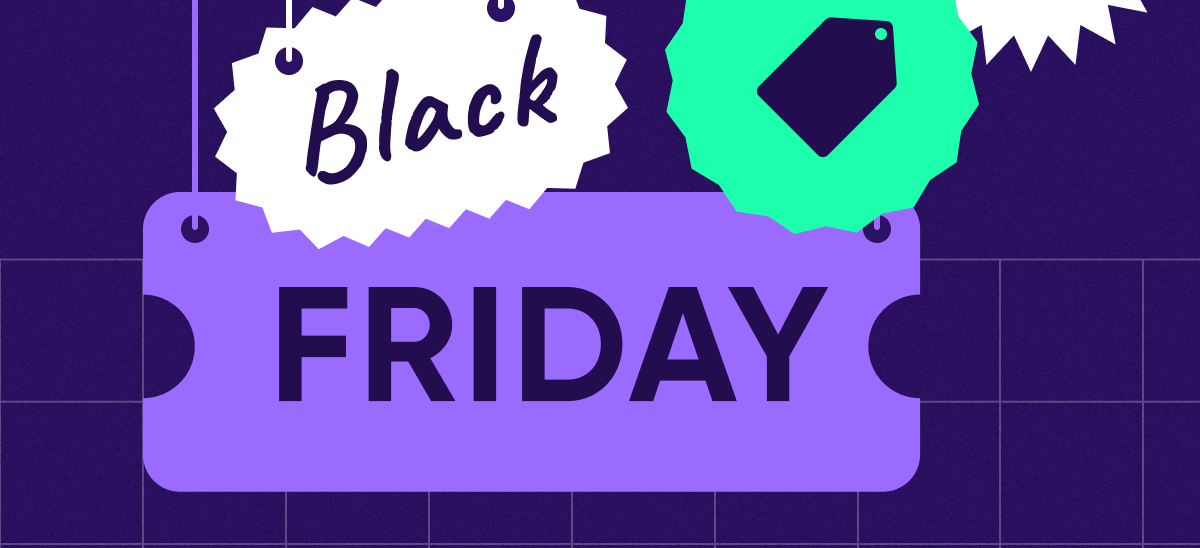How E-commerce Marketers Can Win Black Friday

As new global eCommerce players expand their influence across both European and US markets, traditional brands are navigating a rapidly shifting landscape. These fast-growing Asian platforms have gained traction by offering ultra-low prices, rapid product turnarounds, heavy investment in paid user acquisition, and leveraging viral social media trends to create demand almost in real-time. This evolution is reshaping consumer expectations and forcing traditional brands to rethink their approach, particularly around major retail events like Black Friday.
This year, we anticipate a marked evolution in the strategies of dominant eCommerce platforms. When it comes to their mobile marketing, these marketplaces are turning their attention away from mass user acquisition and focusing more on deepening engagement with their existing users. This pivot suggests a new challenge for brands: increasing investment in retention and re-engagement campaigns to avoid losing customers to these giants during the holiday rush.
Changing Seasonality Patterns: Black Friday Comes Earlier Than Ever
Our recent ‘The State of eCommerce App Marketing’ report reveals a significant shift in consumer shopping behaviour over the last few years, particularly in the lead-up to Black Friday. Several large Asian apps have launched ambitious and successful marketing campaigns across major Western markets, including the United States, UK, and France, challenging the traditional surge in app installs typically seen during the holiday season.
This means Black Friday is now starting earlier than ever, with the peak in app installs and consumer activity beginning months ahead of what used to be a November-dominated period. For instance, in 2023, app install activity ramped up as early as the summer months, with retailers capitalising on lower cost-per-installs (CPI) and cost-per-acquisitions (CPA) before entering the highly competitive holiday shopping phase.
This shift is largely driven by retailers seeking to spread their marketing efforts over a longer time frame, easing the pressure on both budgets and resources during the peak season. By securing app installs and consumer interest early, brands are positioning themselves to capitalise on heightened consumer activity come November without having to compete in an overcrowded ad market where costs skyrocket.
Insights for Marketers: Preparing for Black Friday 2024
In light of these developments, marketers have been preparing for Black Friday well in advance. The days of focusing all efforts on a brief holiday window are over. Savvy brands are launching app install campaigns much earlier, taking full advantage of the cost efficiencies available in the off-peak months. Early preparation allows brands to build a solid user base before consumer competition becomes fierce in late November.
Retention and re-engagement campaigns will be crucial this year, especially with the rise of competing platforms shifting their focus toward strengthening relationships with their existing users. Brands must prioritise retargeting efforts aimed at users who have previously uninstalled apps or disengaged after an initial interaction. Ensuring that a brand stays top-of-mind through personalised outreach, loyalty incentives, and targeted ads will be key for businesses to convert potential one-time customers into repeat buyers.
Key Strategies for Success
1. Early Acquisition: Focus on growing the app user base months before Black Friday by launching install campaigns in the summer and early fall. This will allow the business to capitalise on lower CPIs and CPAs before competition and ad prices peak.
2. Retention & Re-engagement: Build on the current user base through personalised re-engagement campaigns. These can target users who have uninstalled the app or have not interacted with it recently. With platforms increasingly focusing on user retention, a business’ ability to keep users engaged before and during Black Friday will be critical.
3. Targeted Retargeting: Don’t wait for Black Friday to kick off the biggest deals. By retargeting early adopters and previous customers, a business can secure conversions well ahead of the big event, smoothing out the demand surge and easing the strain on logistical resources.
4. App Install Optimisation: With data showing that consumers are shopping earlier every year, ensuring that the app is optimised for a seamless, personalised user experience will be key to both initial engagement and long-term retention. Invest in app enhancements and user experience improvements early to capture this evolving audience.
Leveraging Loyalty and Acquisition in Black Friday Strategies
According to our recent eCommerce data, nearly 60% of customers who make a first purchase become loyal, repeat buyers. This powerful insight should heavily influence brands’ strategies during Black Friday and Cyber Monday. For brands looking to maximise the impact of their holiday promotions, a dual approach is essential – one that distinguishes between prospective and existing customers.
Black Friday presents a unique opportunity for converting prospective customers into loyal ones. Brands should focus on pushing their potential customer base to make that critical first purchase. This can be done through enticing, well-targeted offers and personalised outreach, ensuring that new customers feel valued and motivated to buy.
At the same time, loyal customers should not be neglected. We have seen that many successful retailers provide their most dedicated shoppers with exclusive early access to Black Friday deals before they’re available to the general public. Offering early access or special perks to repeat buyers reinforces loyalty, strengthens customer relationships, and ensures that they feel prioritised over newer audiences.
In essence, Black Friday should not just be a mass acquisition event but also a key moment to nurture and reward existing customers, ensuring long-term engagement well beyond the holiday season. By balancing acquisition with retention, brands can turn Black Friday into a strategy for both immediate gains and sustainable growth.
